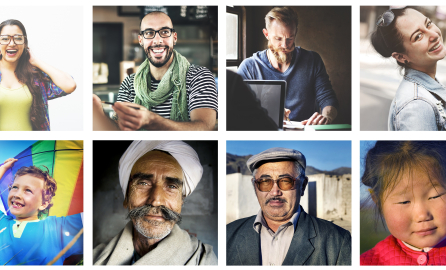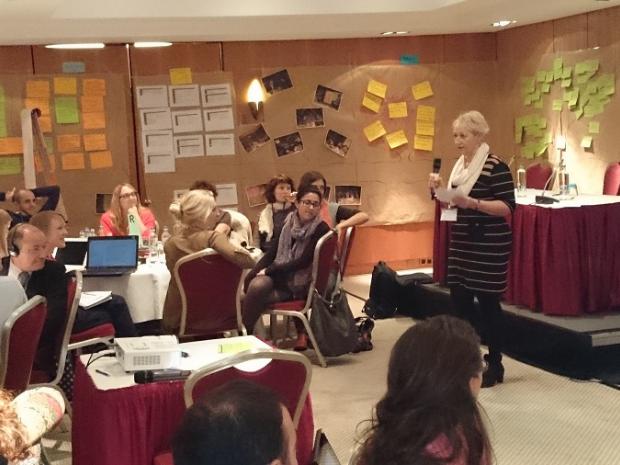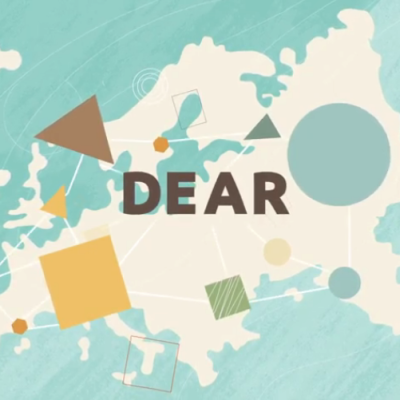Do citizens in Europe care about global issues? Can an engaging campaign or school activity change the way we think and behave? What is the difference between the demonstrable ‘outcome’ of a campaign or training and its tangible ‘impact’? And how does greater awareness of development improve national and European policies and outcomes in partner countries?
These were among the questions raised at a meeting of more than 70 civil society organisations (CSOs) and local authorities in Brussels last month, each of whom receives funding from the European Commission for own-initiative activities in Development Education and Awareness Raising (DEAR). With the launch of the 2015 European Year for Development, these questions are also crucial to understanding how this year can impact European development cooperation.
DEAR aims to contribute to greater policy coherence for development (PCD) by supporting citizens’ active engagement with global efforts for sustainable development. With an average budget of €30 million per year, it is managed through the EuropeAid Civil Society Organisations and Local Authorities thematic programme. The three-year actors’ own-initiative projects include advocacy campaigns, global education activities in the formal education sector (such as teacher trainings), and informal education (including youth groups and adult education).
Conference participants in Brussels
“We had a list of 12 or 13 actions people may take,” said Joanne Malone, Global Campus Manager at Suas Educational Development, which runs extra-curricular development courses at universities in four European countries. “Make a lifestyle change, do further study, work in development, volunteer in development…”
The minimum amount each project has received is €100,000 and the maximum is €1,000,000. The average amount given per project is €750,000.
“That can be a large amount for a small NGO”, said Anna Dmitrijewa, a EuropeAid programme officer responsible for a number of DEAR projects. Ms Dmitrijewa warned that giving too much too soon may risk overwhelming a small NGO with administrative requirements, disrupting their familiar scale of operations.
Valentina Auricchio, the new Head of Sector for DEAR at EuropeAid, said CSOs working in the southern hemisphere can benefit indirectly from Europeans being more knowledgeable about development cooperation.
“[Europeans] will be more convinced of why we have to spend that money and will be more aware of the problems and this will benefit and will have a trickle-down effect, which is positive in the end.”
However, in an era of results-based funding, programmes such as DEAR often struggle to show donors the tangible fruits of their efforts. As a result, several EU Member States have reduced funding to similar initiatives.
Within the European Commission, the Unit responsible for DEAR activities is facing similar questions related to measuring awareness. Although quantifiable indicators are easier to establish, qualitative indicators of DEAR activities are more challenging to measure. Sometimes the impact on societal perceptions can only be evaluated well after project activities have finished.
Paul Renier, Acting Head of Unit for Civil Society and Local Authorities, told participants at the seminar that “internally there is more and more pressure on us to come up with a corporate results framework”. To get there, the Commission relies on NGOs and local authorities being able to prove their worth.
“We are curious to see how the grants you are managing are adding value,” Mr Renier said.
That’s where people like Liz Allum come in. She is the Education Coordinator at the Reading International Solidarity Centre (RISC) in the UK, which discusses sustainability, human rights and social justice in schools.
At first, RISC was interested in measuring the impact its training was having on young students. Teachers liked RISC’s activities, such as asking children to draw things they were likely to find in a country in Africa, due to the novel responses these elicited. However, RISC found teachers sometimes struggled to gauge the change in attitudes the projects were designed to inspire.
“They often say, 'it was a great activity, we loved it' and then we say 'so what change did you see?' and they go ‘oh we didn’t measure that’."
Now, Ms Allum and her colleagues are designing a comprehensive toolkit of 30 or more activities for teachers to record the attitudinal responses of children but also their comments as they do the activity.
“They’re not just measuring knowledge about the continent, but also [children’s] attitudes towards the continent. So for example, do they perceive poverty as an issue of pity or as an issue of solidarity? That’s an attitude… and that will come out through the activity.”
Participants in the Brussels seminar also discussed how to differentiate the output of their programme (i.e. ‘tangible goods and services delivered by the projects’) from the outcome (‘sustainable flow of benefits to the project’s target groups’) and impact (‘effect of the project on its wider environment’), for the purpose of reporting back to the European Commission.
For Ms Malone and her colleagues measuring the success of their programmes requires diligent follow-up.
"We look at whether people are motivated to take action and then we follow up six months later to see if they have taken action. That's a clear indicator of whether they were motivated or not. The six-month piece is for us the impact, so we're trying to see whether the outcomes translate into impact."
Of those involved in SUAS Educational Development trainings and initiatives focusing on international development, 75 % were motivated and 73 % had taken some form of action six months later.
Ms Auricchio advised projects to ensure they have a good grasp of where they are starting from, in order to measure their outcomes.
“What is your zero point and how can you measure the progress that you have made?” she said. “Some projects start up without having defined their baselines.”
She also flagged more support could be given for projects that seek to tackle inequalities, racism, extremism and stereotypes.
“There are so many other areas in which people could be made more alerted and in the longer term will benefit the entire society.”
With 2015 marking the European Year for Development, as well as the replacement of the Millennium Development Goals with the Sustainable Development Goals, Mr Renier said the need to engage Europeans in development issues was greater than ever.
“There is so little knowledge out there that there is such an important change and paradigm shift coming up.”
Next year marks an unparalleled opportunity for CSOs and Local Authorities implementing DEAR projects to make a marked difference.
|
For more information about DEAR check out the Public Group on capacity4dev.eu, What is next for on-going projects (CSO-LA Programme's seminars)? The Commission Staff Working Document on DEAR is here. |
This collaborative piece was drafted with input from Liz Allum at RISC and Anna Dmitrijewa at DEVCO with support from the capacity4dev.eu Coordination Team.






Log in with your EU Login account to post or comment on the platform.